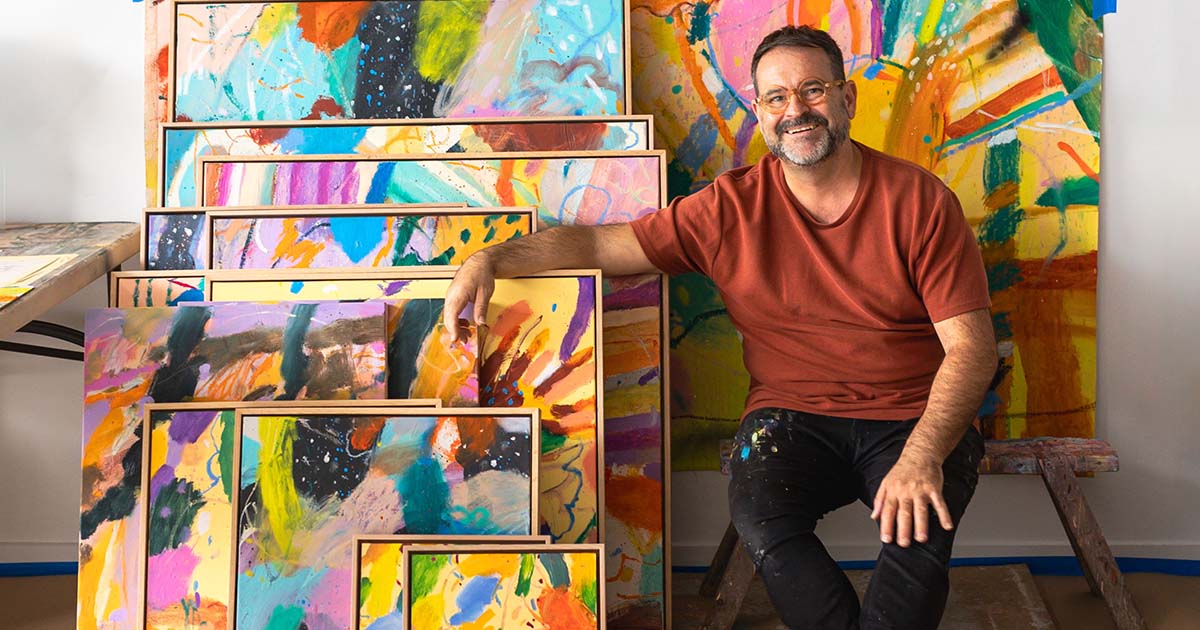Researchers from the Faculty of Education and Arts have won prestigious international grants totalling more than $2.3 million.
Professor Susan Broomhall secured $2.2 million in funding from the Swedish Research Council (SRC) to explore the emotional impact of migration and separation.
Professor Broomhall is also the lead researcher on a $50,000 German Academic Exchange Service (DAAD) grant on child slavery in the early modern world, with fellow ACU historians Dr Jessica O’Leary and Dr Kristie Flannery.
Education researchers Dr Vincent Geiger and Dr Sarah Digan were successful in securing a $50,000 DAAD grant to explore the impact of big data in the classroom.
Exploring belonging and separation
Professor Broomhall leads the Gender and Women’s History Research Centre in the Institute for Humanities and Social Sciences at ACU. She secured the prestigious international grant to explore experiences of separation in the 16th and 17th centuries, a time of increased global mobility.
“Understanding separation helps us to analyse intensely human experiences of belonging, and its opposites – isolation, loneliness and withdrawal,” Professor Broomhall said.
“Over the past two years, we have all faced unexpected experiences of separation as nations, communities and individuals dealt with the global pandemic.
“I want to ask questions about what it feels like to be apart. We all experience forms of separation as we move through life stages, take up job opportunities, emigrate, retreat from others for moments of solitude, are forcibly exiled, displaced by war, segregated or required to quarantine to protect ourselves and others. So too did people in other times and places.”
The Swedish Research Council Research Environment grants had a success rate of just 15 per cent, and Professor Broomhall said she was delighted to receive the international funding.
“It’s wonderful to have this recognition of our expertise and the opportunity to train new scholars into this exciting humanities project,” she said.
“It will include two postdoctoral researchers, a PhD course and a rich public engagement program involving blogs, social media, short films and podcasts, and collaboration with the Vasa Museum’s sixteenth-century global history exhibit, Meanwhile.”
Professor Broomhall will work on the project with researchers at Lund University, Sweden and collaborate with leading scholars around the globe.
“The grant will enable us to research in archives across the world and publish our large collection of source data in an open access database, paving the road for a field of digital humanities studies on separation.
“Our collation of around 5,000 letters from across the globe will be given summaries in English and be integrated into the Early Modern Letters Online project at the University of Oxford.”
Putting a spotlight on child slavery
Professor Broomhall and fellow ACU historians Dr Jessica O’Leary and Dr Kristie Flannery also won a $50,000 grant through the German Academic Exchange Service (DAAD) and Universities Australia.
The team will research child slavery in the early modern world at the Universität Bonn’s Centre for Dependency and Slavery Studies – a global centre of excellence that hosts leading researchers from Germany and around the world.
Dr Flannery said the project would help shed new light on the slave trade in Asia, bringing current day crisis in the spotlight.
“Compared to slavery in the Atlantic world, including in cities like Havana and on sugar plantations across the Americas and the Caribbean, we know relatively little about the dimensions and experiences of slavery in this part of the globe. It is a real gap in our knowledge.
“One of the major barriers to ending child slavery and trafficking today is that it remains invisible, or obscured. By recovering evidence of child slavery in our region in the past, we contribute to making this transnational crisis more visible in the present, placing pressure on communities and governments to take action.”
Dr O’Leary said the grant would enable research with global impact.
“By combining our expertise, we will be able to draw out stories of children who ordinarily would be ignored in traditional historical narratives,” she said.
Using big data in the classroom to tackle real world problems
Dr Vincent Geiger and Dr Sarah Digan from ACU’s School of Education won a $50,000 DAAD grant to look at ways of strengthening teachers’ instructional capabilities with Big Data.
Dr Digan said the project would allow researchers to look at how data can be used in the curriculum to explore real world issues like global warming, rising unemployment and energy security.
“Big data is directly or indirectly impacting our everyday lives and decision-making. Building tasks which allow teachers and students to familiarise themselves with the power and limitations of data is incredibly important.
“Students already deal with data outside the classroom, but often in an uninformed and unfiltered way. It makes sense to start investigating how dealing with larger data sets can be effectively implemented into the curriculum.”
Dr Geiger said the research project would be conducted in collaboration with teachers from an Australian and German school.
“Our work will help teachers implement the recently revised Australian Curriculum in Maths and Science, which now includes processes such as mathematical modelling and statistical experiments.
“This project will allow us to pilot new ideas, technologies, and methodologies and provide the foundation for a larger more ambitious project going forward.”
Research excellence receives international recognition
The funding announcements are a significant outcome for ACU, according to Executive Dean Faculty of Education and Arts Professor Mary Ryan.
“These grants reflect the high calibre of arts and education researchers at ACU,” Professor Ryan said.
“We are delighted to see international recognition of our cutting-edge work on the complex issues facing contemporary society.







